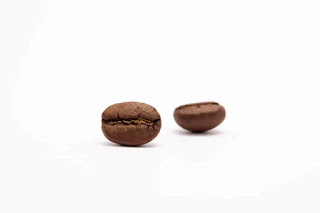In the case of awakening to the smell of naturally prepared espresso, getting a charge out of lunch with a refreshingly cool soda pop or unwinding at night with some tea, these every day delights frequently have a typical fixing—caffeine.
Individuals have delighted in nourishments and drinks containing caffeine for a large number of years. It is one of the most well-examined fixings in the nourishment supply. All things considered, discussion and misperceptions about this nourishment part proceed.
Verifiable NOTES
As quite a while in the past as 2737 B.C., Chinese Emperor Shen Nung was bubbling drinking water when the leaves of a close by hedge fell into the pot, making an awesome smelling drink and the main pot of tea.
Espresso began in Africa around 575 A.D., where beans were utilized as cash and expended as nourishment.
Eleventh century Arabians were known to have espresso refreshments.
While investigating the New World, Spanish conquistadors were blessed to receive a chocolate drink by Aztec Emperor Montezuma in 1519.
The world's first jazzed sodas were made in the 1880's.
CAFFEINE AND HEALTH
During the previous two decades, broad research has been led on the wellbeing parts of caffeine utilization.
The U.S. Nourishment and Drug Administration (FDA) ordered caffeine as Generally Recognized As Safe (GRAS) in 1958. A later survey "found no proof to demonstrate that the utilization of caffeine in carbonated drinks would render these items damaging to wellbeing."
The American Medical Association (AMA) has a comparable situation on caffeine's wellbeing, expressing that "Moderate tea or espresso consumers presumably need have no worry for their wellbeing comparative with their caffeine utilization gave other way of life propensities (diet, liquor utilization) are moderate, too."
Most specialists concur that balance and good judgment are the keys for expending caffeine-containing nourishments and refreshments. Moderate caffeine utilization is viewed as around 300 mg. which is equivalent to 3 cups of espresso, yet this relies upon the individual and can shift from one to a few refreshments. Shoppers with certain medical issues may wish to counsel with their doctor or social insurance supplier about caffeine utilization.
"Moderate tea or espresso consumers most likely need have no worry for their wellbeing comparative with their caffeine utilization gave other way of life propensities (diet, liquor utilization) are moderate, also."
The American Medical Association
Affectability
Individuals contrast extraordinarily in their affectability to caffeine; a few people can drink a few cups of espresso, tea or sodas inside an hour and notice no impacts, while others may feel invigorating impacts after one serving. Caffeine doesn't collect in the circulation system or body and is ordinarily discharged inside a few hours following utilization.
Caffeine may build sharpness in tired people and upgrade execution of specific errands. Numerous individuals find stimulated refreshments can enable them to remain ready when they work or study. Singular affectability and recurrence of utilization decide the impact of caffeine on rest.
National Institutes of Health (NIH) look into demonstrates there is no distinction in the manner kids and grown-ups handle caffeine. These investigations have demonstrated that caffeine-containing nourishments and drinks don't affect hyperactivity or the capacity to focus of kids.
Guardians should utilize good judgment in choosing how a lot of caffeine-containing nourishments or drinks they give their kids, likewise with numerous food sources.
PREGNANCY
The FDA has expressed that caffeine doesn't unfavorably influence generation in people, despite the fact that the organization keeps on encouraging pregnant ladies to expend caffeine with some restraint.
Three significant examinations including in excess of 15,000 ladies found no birth deformities related with caffeine utilization even among the heaviest espresso consumers. Likewise, other human examinations keep on supporting the end that moderate utilization of caffeine doesn't incline eager moms to unconstrained premature birth or preterm conveyance, nor the embryo to low birth weight.
A few examinations recommend that significant levels of caffeine admission may postpone time to origination, yet these discoveries are uncertain and frequently conflicting when other way of life factors are considered. Research from the Centers for Disease Control and Prevention, Harvard Medical School and the University of California at Berkeley demonstrate that moderate caffeine utilization doesn't diminish a lady's possibility of getting to be pregnant.





No comments:
Post a Comment